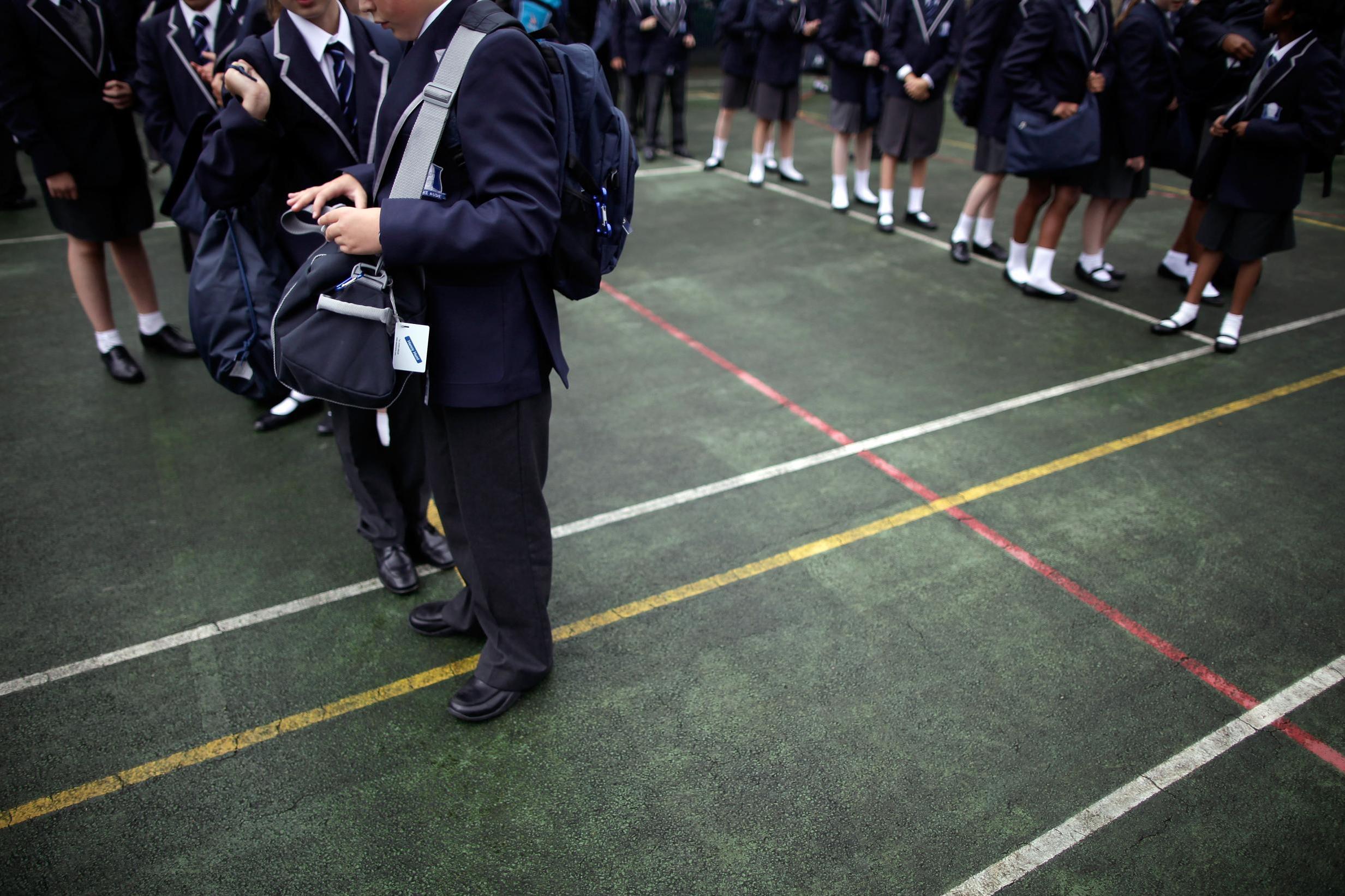Half of headteachers admit social segregation is a problem in state schools, study finds
'Parents and teachers want a fairer system where schools reflect their communities'

Your support helps us to tell the story
From reproductive rights to climate change to Big Tech, The Independent is on the ground when the story is developing. Whether it's investigating the financials of Elon Musk's pro-Trump PAC or producing our latest documentary, 'The A Word', which shines a light on the American women fighting for reproductive rights, we know how important it is to parse out the facts from the messaging.
At such a critical moment in US history, we need reporters on the ground. Your donation allows us to keep sending journalists to speak to both sides of the story.
The Independent is trusted by Americans across the entire political spectrum. And unlike many other quality news outlets, we choose not to lock Americans out of our reporting and analysis with paywalls. We believe quality journalism should be available to everyone, paid for by those who can afford it.
Your support makes all the difference.Half of secondary school heads admit that social segregation is a problem in state schools, according to a new study.
Nearly four in five (78 per cent) of parents believe that comprehensive schools should have a better mix of pupils from different backgrounds, a report from the Sutton Trust suggests.
The current admissions system strongly favours wealthier parents who can afford to rent or buy closer to the highest achieving schools, according to research published ahead of secondary school offer day.
More than two in five (43 per cent) secondary school headteachers say they do not consider the socio-economic make-up of their community when designing their own admissions policies.
And yet, nearly two in three (64 per cent) parents, polled by YouGov, believe that high achieving schools should make an effort to take in more pupils from less affluent backgrounds.
Sir Peter Lampl, founder and chairman of the Sutton Trust social mobility charity, said: “Our school system is highly socially segregated.
“Schools with well-off intakes sit alongside those with high levels of disadvantage. And low- and moderate-income families are less likely to access the highest performing schools.”
He added: “It’s clear from today’s research that parents and teachers alike want to see a much fairer system, where schools better reflect their communities.
"This would have far-reaching benefits, from better levels of overall attainment to improved teacher recruitment and retention.”
Geoff Barton, general secretary of the Association of School and College Leaders, said: “It has long been the case that families buy or rent properties near high-performing schools, and this pushes up property prices, making it difficult for disadvantaged families to access these schools, and reinforces a social divide.
“Some schools already reserve places for children from disadvantaged backgrounds, as the Sutton Trust notes in its report, and it is a good idea to consider how more can be done across the school system.
"However, we need to recognise that identifying solutions is likely to be more practical in urban areas where families from a variety of income groups are in relatively close proximity to a high-performing school, and more difficult to achieve in areas where this is not the case.”
Paul Whiteman, general secretary of school leaders' union NAHT, said: “There are a wide number of issues at play when it comes to school admissions and many of these are beyond an individual school’s control.
“We should always be open to finding new ways to make admissions fair to all but this will require a co-ordinated, joined-up response.”
Additional reporting by PA
Join our commenting forum
Join thought-provoking conversations, follow other Independent readers and see their replies
Comments